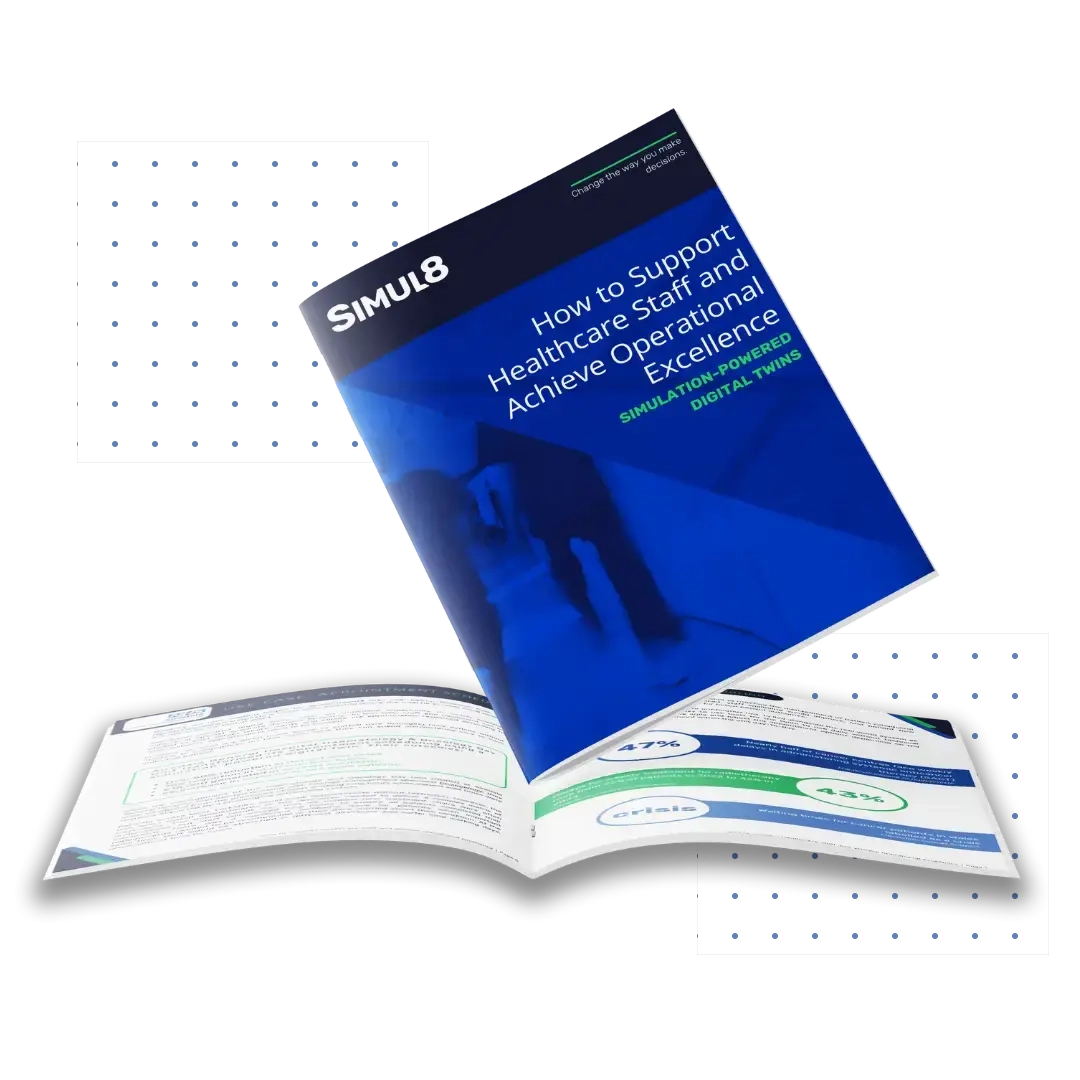Transform Healthcare with Simulation-Powered Digital Twins
Discover how simulation-powered digital twins unlock efficiency, support staff well-being, and improve patient outcomes with this whitepaper.
Streamlining Operations and Supporting Healthcare Teams
Are long hours and patient wait times overwhelming your team?
Research by The King’s Fund found that NHS workers are 50% more likely to experience high levels of work-related stress compared to the rest of the working population, while as many as one in two in the NHS are experiencing symptoms of burnout, according to research from University of Bath.
The impact on NHS staff of an increasing backlog of appointments while resources are being depleted should not be underestimated. While looking after the health and well-being of people is the business of the NHS, any plans to improve the UK’s healthcare system must begin with looking after and retaining the valuable NHS workforce.
The ability to alleviate pressures felt by healthcare workers and release time to care offers a useful litmus test for the introduction of any new solution to tackle the challenges faced across healthcare. It’s a time when pragmatic and simple changes will make the biggest, immediate impact on the day-to-day experiences of staff.
How can we ensure that resources have been distributed appropriately so that staff are not left trying to stop a flood with a paper cup when demand levels fluctuate? How can we better prepare for winter pressures? How do we ensure better allocation of patients in the right beds for improved outcomes?

Airedale General Hospital Haematology & Oncology Day Unit transformed its appointment scheduling using a simulation-powered digital twin. Their outcomes:
Keep reading...